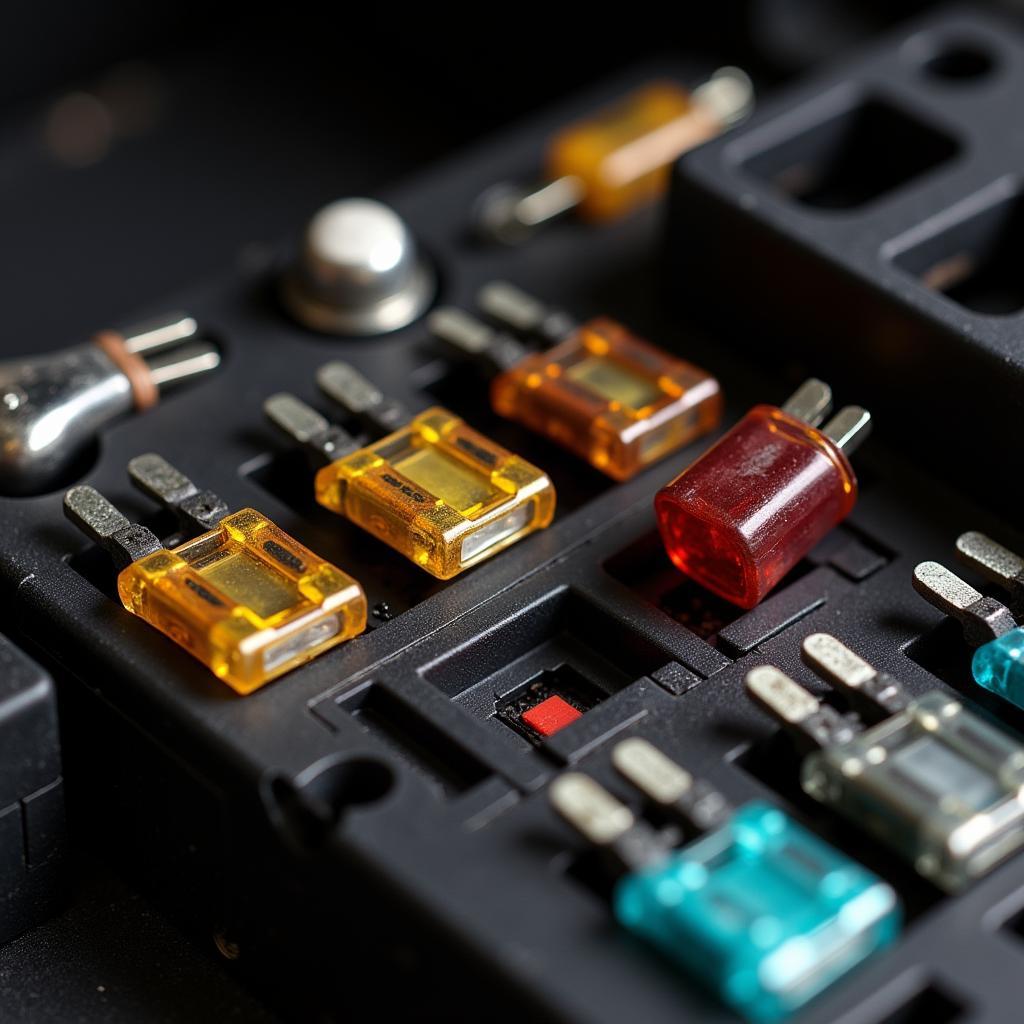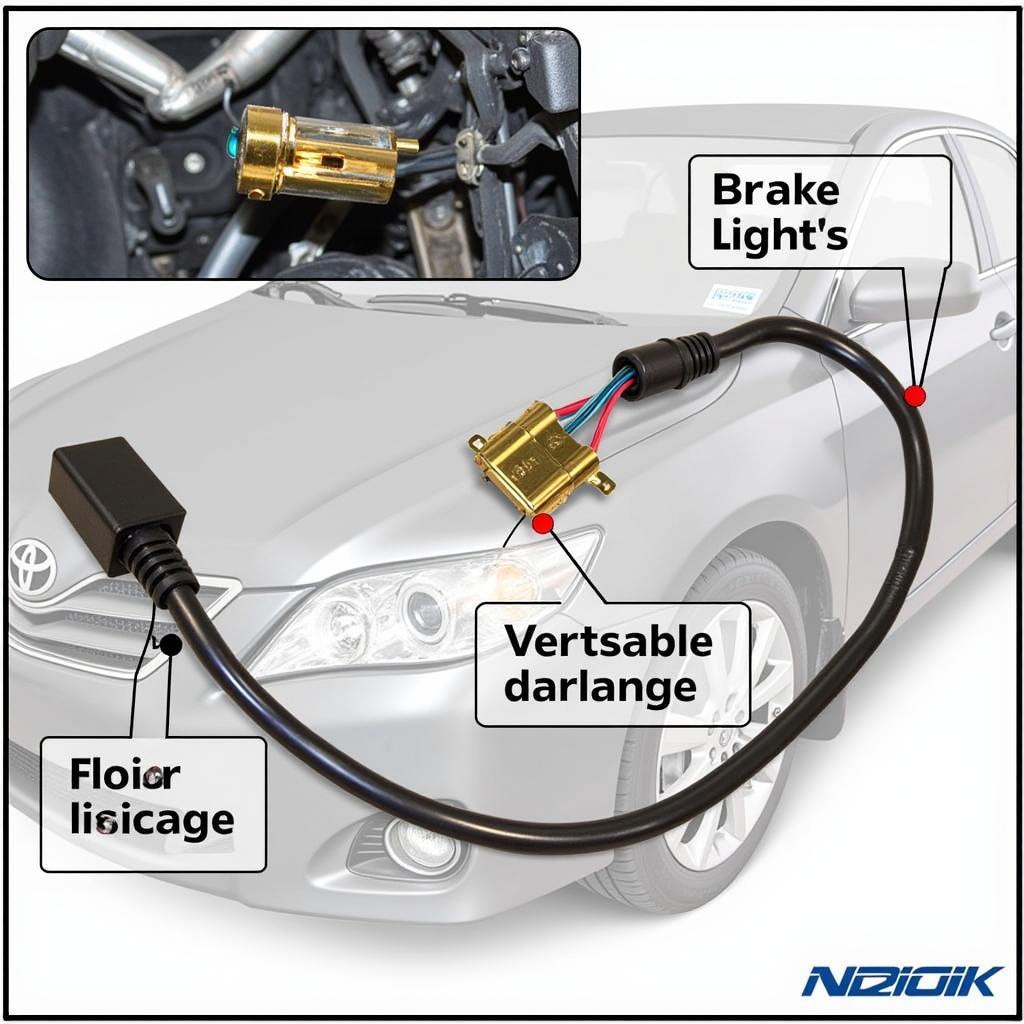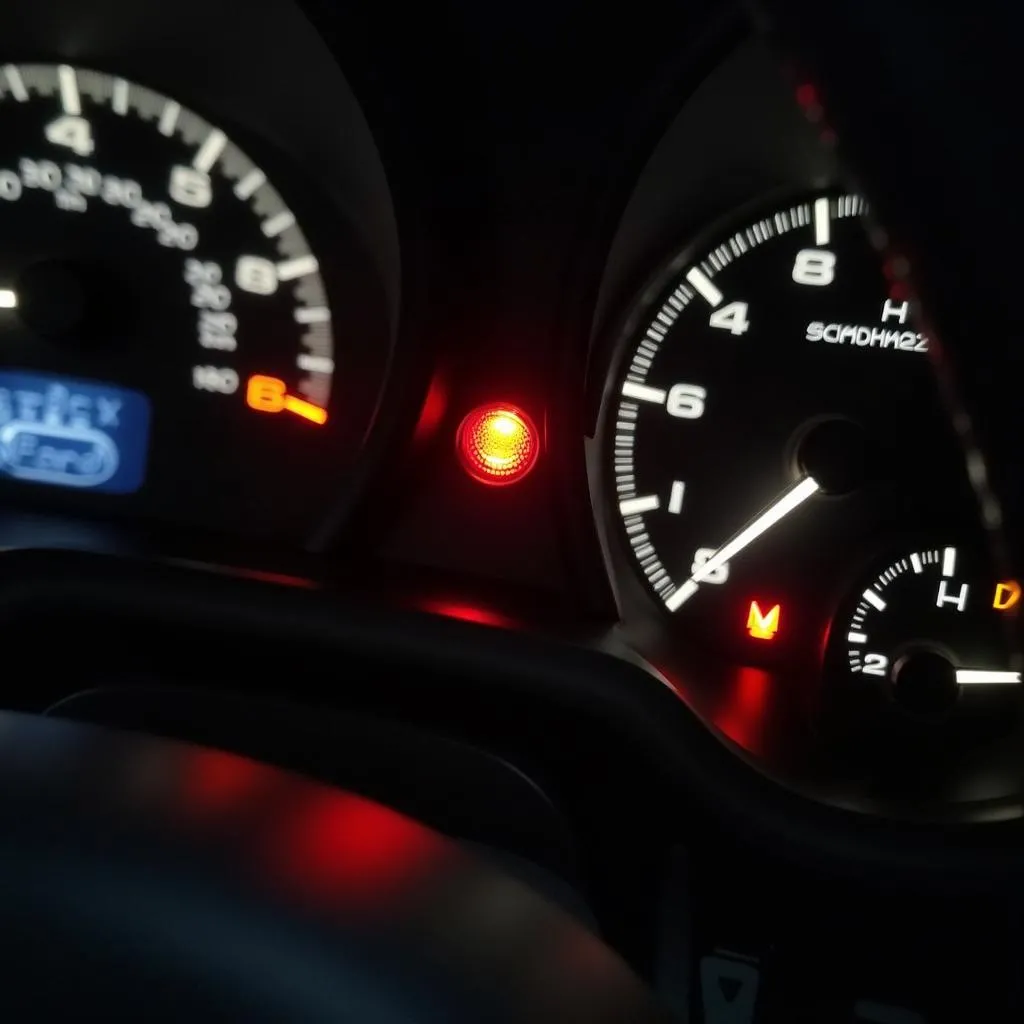The brake light warning light on your 1997 Toyota Camry LE is more than just a minor annoyance. It’s a crucial safety feature, alerting you and other drivers to potential braking issues. Ignoring this warning could lead to dangerous situations on the road. This comprehensive guide will walk you through the possible causes of this warning light, how to diagnose them, and the steps to get you back on the road safely.
Common Culprits Behind the Glowing Warning
Several factors can trigger your Camry’s brake light warning light. Here are the most common culprits:
1. Burnt-Out Brake Light Bulbs
The simplest explanation is often the most likely. A burnt-out brake light bulb is a common reason for the warning light.
Quick Check:
- Have a friend press the brake pedal while you inspect each brake light.
- Replace any burnt-out bulbs with the correct type for your Camry’s model year.
2. Blown Fuse
A blown fuse in your car’s electrical system can disrupt power to the brake lights, triggering the warning light.
Diagnosis:
- Locate your Camry’s fuse box (refer to your owner’s manual).
- Look for a blown fuse related to the brake lights.
- Replace any blown fuses with a new one of the same amperage.
 Blown Fuse Identification
Blown Fuse Identification
3. Faulty Brake Light Switch
The brake light switch, located above the brake pedal, activates the brake lights when you press the pedal. A faulty switch may not send the signal, resulting in the warning light.
Testing the Switch:
- Locate the brake light switch.
- With the ignition off, depress and release the brake pedal several times.
- Listen for a clicking sound from the switch. No sound indicates a potential problem.
4. Wiring Issues
Worn-out, damaged, or corroded wiring can disrupt the flow of electricity to the brake lights, leading to a warning light.
Inspection:
- Visually inspect the wiring harness leading to the brake lights.
- Look for signs of damage, fraying, or corrosion.
- If you find any issues, consult a qualified mechanic for repair.
 Brake Light Wiring Harness
Brake Light Wiring Harness
5. Brake Fluid Leak
A brake fluid leak is a serious issue that can affect your Camry’s braking performance. Low brake fluid levels can also trigger the brake light warning light.
Warning:
- Do not drive your car if you suspect a brake fluid leak.
- Contact a qualified mechanic immediately for inspection and repair.
“A brake fluid leak is not something to ignore,” says John Davis, a certified automotive technician with over 20 years of experience. “It’s vital to address it immediately to ensure your safety and prevent further damage to your braking system.”
Beyond the Basics: Advanced Diagnostics
If you’ve ruled out the common causes and the brake light warning light persists, more advanced diagnostics might be necessary. These often require specialized equipment and expertise.
Advanced Troubleshooting:
- Check the Vehicle Speed Sensor: This sensor helps control various systems, including the brake lights. A malfunctioning sensor could be the culprit.
- Inspect the ABS Control Module: The Anti-lock Braking System (ABS) control module manages various braking functions. Issues with this module can affect the brake lights.
Putting Safety First: When to Seek Professional Help
While some brake light warning light issues can be resolved with DIY troubleshooting, seeking professional help is crucial in certain situations:
- You suspect a brake fluid leak.
- You’re uncomfortable working on your car’s electrical system.
- The problem persists after trying basic troubleshooting steps.
Conclusion: A Light You Should Never Ignore
The brake light warning light on your 1997 Toyota Camry LE is a safety essential, not a suggestion. Addressing the underlying issue promptly ensures your safety and the safety of others on the road. By following the troubleshooting steps outlined in this guide, you can diagnose the problem and take the appropriate action, whether it’s a simple bulb replacement or seeking professional assistance. Remember, when it comes to brakes, it’s always better to err on the side of caution.

